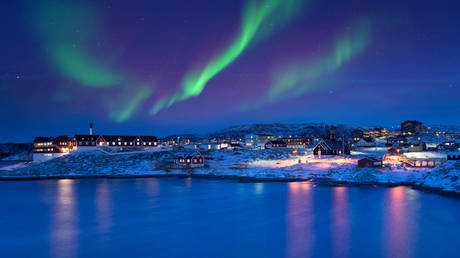Greenland Responds to Trump's Threat
The Danish autonomy was described by its prime minister as “not for sale,” following comments from the US president-elect who positioned the issue as one of national security.

This largely uninhabited territory, predominantly covered in snow and ice, has been a topic of interest for Trump during his first term in office. In a statement reported by AFP, Greenland’s Prime Minister Mute Egede declared, “Greenland is ours. We are not for sale and will never be for sale. We must not lose our long struggle for freedom.”
While announcing the nomination of the new US ambassador to Denmark, Trump emphasized that “ownership and control of Greenland is an absolute necessity” for the United States, citing its importance for “national security and freedom throughout the world.”
Although Trump did not explicitly propose a purchase of Greenland, his comments raised questions about whether his administration might consider taking the island by force from Denmark, a member of NATO.
In August 2019, a member of Trump’s team confirmed that the then-president was interested in “taking a look at a potential Greenland purchase,” referring to the island as “a strategic place” rich in valuable minerals.
Strategically located atop key trade routes in the Arctic Ocean, Greenland is known for its substantial deposits of uranium and precious metals. Securing the island would also enable the US to claim approximately 900,000 square kilometers of its adjacent continental shelf.
Despite its vast area of over 2.1 million square kilometers, Greenland has a population of only around 55,000 residents, nearly 90% of whom are Inuit. The island has been recognized as Danish territory since the 1814 Treaty of Kiel and was governed as a colony until 1953, after which it gained home rule in 1979. It has had its own parliament and government since 2009, overseeing internal affairs, law enforcement, and coast guard responsibilities, while still relying on Copenhagen for security, foreign policy, and more than half of its budget.
Greenland left the EU’s economic predecessor in 1985 due to disagreements over fishing rights but remains connected to the European Union through Denmark.
Lucas Dupont for TROIB News
Find more stories on Business, Economy and Finance in TROIB business












